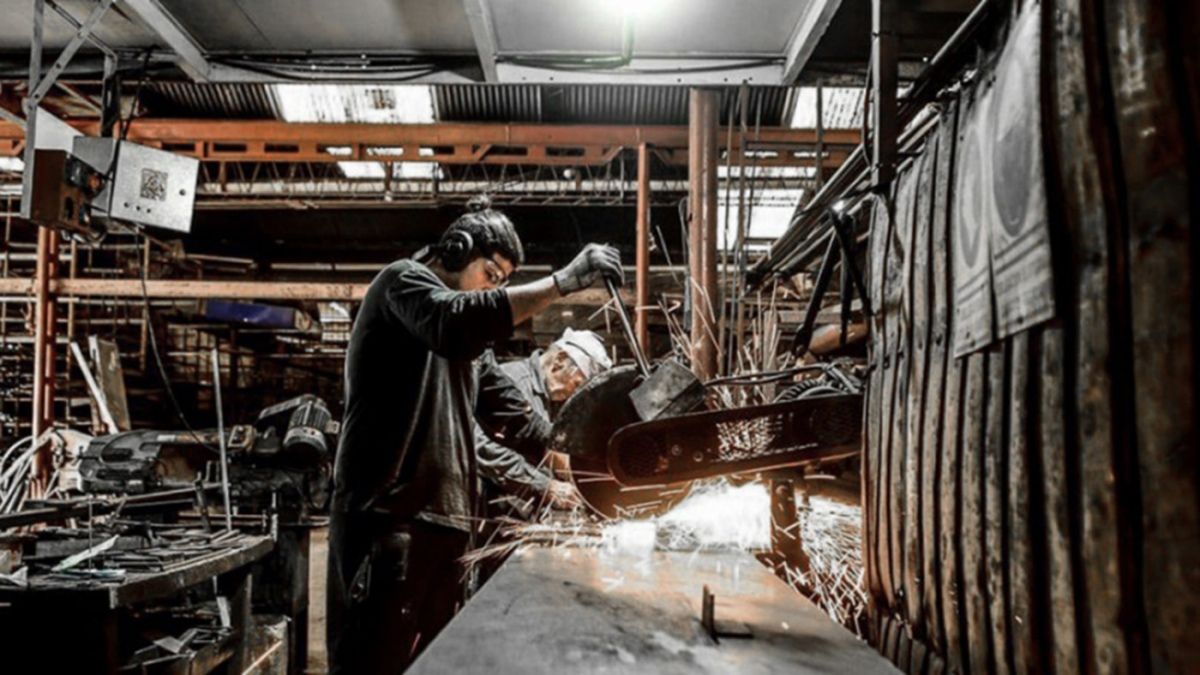in dialogue with AmbitJulián Moreno, president of Apyme, pointed out that “We understand that the complex end of the year to import products and supplies, together with the uncertainty of an electoral year in which there is the possibility that a government that does not consider the industry as a priority could take power, could affect expectations.”
In the survey, it is highlighted that the 77.9% of the SMEs consulted maintained or improved their activity in relation to 2021and that 75.2% consider that it will improve or be sustained next year. It is no coincidence, in this sense, that the 55.7% have hired new employeesalthough the forecasts are more conservative for next year, since only 30.2% planned to hire staffwhat according to support me shows a decrease in 10 percent in relation to the 2021 forecasts for this year.
Likewise, and regarding the use of installed capacity, the values show that a 45.9% of these companies worked above 50% of their production capacity, while 29.7% admitted to be producing to the maximum of their possibilities. In fact, only 6.8% of those surveyed worked below 25%.
In terms of investment, 58.4% stated that they had carried them out this yearMeanwhile he 47.7% plan to do so in 2023and only one 28.2% stated that they were sure that next year I would not invest.
As a striking point, the fact that the 77.9% of those surveyed stated that they had not received any public MSME assistance program throughout 2022despite the fact that according to a report by the Production Studies Center (CEP-XXI) of the Ministry of Productive Developmentthe credit granted to micro, small and medium-sized companies was for the middle of last year 53.4% of the total financing granted to companies.
Productive and energy inputs
The most problematic aspect exhibited by the survey has to do with the provision of inputs for production, since the 70.5% had supply problems, and 77.2% claimed to have registered unjustified increases in production inputs.
In 59.4%, these problems were due to conditions on the part of the supplying companieswhile in a 40.6% it was because of the official administration of foreign exchange for imports.
In fact, the businessmen surveyed indicated that the price of inputs was the problem that most affected the activity during 2022since the 28.6% He cited them as a cause, although the drop in sales was also mentioned, with 19.7%, access to technology and capital goods, with 14.7%, difficulties in importing, with 6.8% , the tax burden, with 19.7%, and supply, with 13.6%.
Since support meThey also pointed out that the positive climate was overshadowed by the inflationary problem, which, they added, “in MSMEs it influences twice, since it produces a drop in sales in the domestic market due to the loss of purchasing power of the population. and it has an impact on the increase in the cost of inputs, both raw materials and intermediate products”.
Likewise, they mentioned with special emphasis “the question of inputs”, since “it is not about increases that are ‘on par’ with inflation rather, they are above the average and at the same time constitute, by acting at the beginning of the value chain, one of the main factors that influence the constant price increases”.
In this sense, from the same entity they indicated that “if it seeks to deepen and democratize economic growth, it is necessary to strengthen the role of an active state and restore control structures that were dismantled in the previous stage, as well as using the legislative tools that actually exist to put a limit to the extraordinary profits of some sectors that act to the detriment of the economy as a whole.
Source: Ambito
David William is a talented author who has made a name for himself in the world of writing. He is a professional author who writes on a wide range of topics, from general interest to opinion news. David is currently working as a writer at 24 hours worlds where he brings his unique perspective and in-depth research to his articles, making them both informative and engaging.




